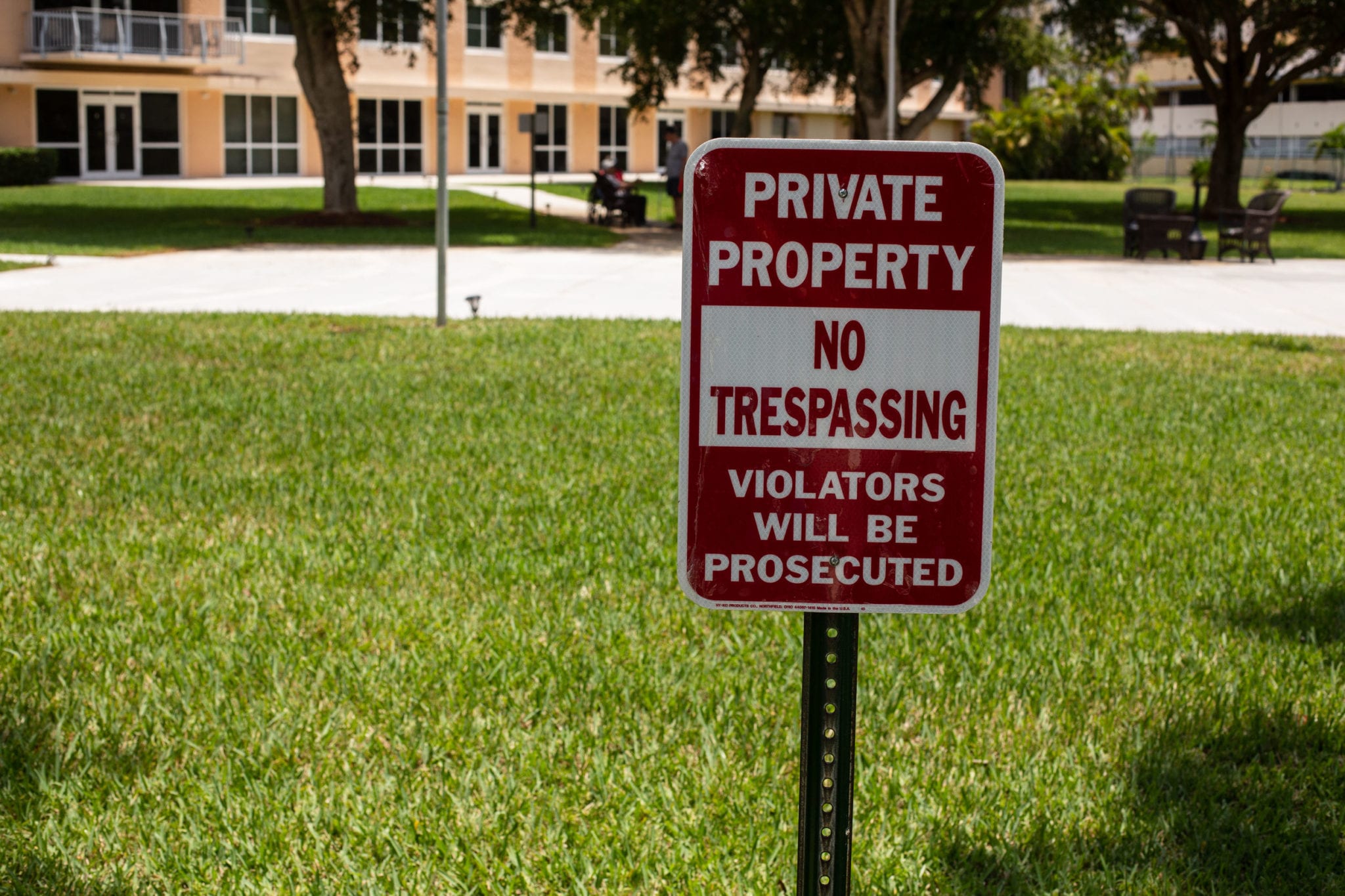
One of the great things about the United States is the right to own private property. While each state has different laws surrounding property ownership, they all agree that private property is essential and trespassing is a crime.
Over the past several weeks, a large number of stories involving people being arrested for criminal trespass have been about protestors being hauled in by police. However, not every case lately involves those protesting...
In fact, one Dallas police officer found out recently that property laws are applicable to everyone -- including those in law enforcement -- when the officer in question was arrested after trespassing on the property of his ex-spouse.
Because private property can sometimes be a complex subject, we’ll dive deeper into the laws surrounding private property in the Lone Star State, then examine when a person has committed criminal trespass and what the potential consequences to this are.
What Is Criminal Trespass in the State of Texas?
The Texas Penal Code has a very specific definition for the crime of criminal trespass. According to the Penal Code:
“A person commits an offense if the person enters or remains on or in property of another, including residential land, agricultural land, a recreational vehicle park, a building, or an aircraft or other vehicle, without effective consent and the person:
- had notice that the entry was forbidden
- received notice to depart but failed to do so”
Changes to Criminal Trespass Laws in Texas?
One of the key elements to the laws that is important to remember is that a person “received notice to depart but failed to do so.” This means, among other things, that it is possible for a person to have permission to be on a property but then have that permission revoked.
One of the big ways this comes into play is with the new laws surrounding the use of masks in different parts of our state. In response to the COVID-19 epidemic, some cities in Texas are opting to enact laws that say a person who refuses to wear a mask while in city facilities can be charged with criminal trespass.
The key thing to note here is that they will only be charged if they refuse to leave. According to the laws, masks will be provided for those who don’t have one. So a person may be in compliance when initially entering the facility, but can be charged with trespassing for refusing to leave when asked.
What Are the Penalties for Criminal Trespass in Texas?
The crime of criminal trespass can range from a Class C misdemeanor to a Class A misdemeanor depending on certain factors surrounding the crime. The punishment for criminal trespass breaks down as follows:
- Class C Misdemeanor - if the trespass occurs on agricultural land within 100 feet of the boundary line or if the trespass occurs on residential land within 100 feet of a freshwater source.
- Class B Misdemeanor - all other instances of trespass with the exception of those listed as a class C misdemeanor or a class A misdemeanor described below.
- Class A Misdemeanor - the crime is a class A misdemeanor if it is committed on a shelter or habitation, a superfund site, or a critical infrastructure facility. A crime is also charged at this level if the person trespasses on an institution of higher education and the person has been previously convicted of this crime or if the person carries a deadly weapon during the offense.

The primary defenses for the crime of criminal trespass are if the person is an emergency response worker, a utility worker, or a person employed in a similar capacity. The person must have been acting in an official capacity or performing their normal duties at the time of the reported offense for this defense strategy to work.
About the Author:
Brandon Fulgham has an in-depth understanding of both Texas law and Texans themselves. Before practicing law here, he received his undergraduate degree from TCU, and his law degree from South Texas College of Law in Houston. After graduation, he worked in District Attorneys’ offices as a prosecutor, building cases designed to put people behind bars. Now, he uses that knowledge to protect the rights of people in and around Fort Worth. He has been recognized for his work by Expertise (Best Criminal Defense Lawyers in Forth Worth and Best DUI Lawyers in Fort Worth, both 2020), The National Trial Lawyers, Fort Worth Magazine, and others.